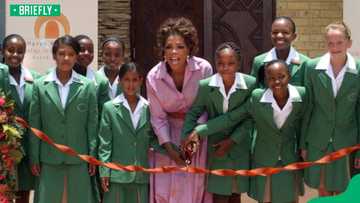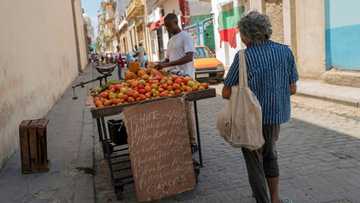What is BEE? BBBEE levels explained to make your business grow in 2024
Many people have asked, "What is BEE?" Well, it is an acronym for Black Economic Empowerment. The BEE initiative was started by The Republic of South Africa to reduce the racial inequalities in the business world caused by apartheid. The initiative champions equal business opportunities for all people of colour.

Source: UGC
BEE and BBBEE are acronyms that often confuse people. The latter stands for the Broad-Based Black Economic Empowerment. BBBEE provides a legal framework for the implementation of BEE. What is BEE? Learn more about it below.
What is BEE?
Black Economic Empowerment (BEE) is a government policy in the Republic of South Africa. The policy promotes racial inclusiveness in the business industry. The government of South Africa created BEE to redress the inequalities brought by the apartheid era.
What is the meaning of BBBEE?
BBBEE stands for Broad-Based Black Economic Empowerment. BBBEE is the legal framework for the implementation of BEE. The BBBEE Act of Parliament was amended and became operational on 24 October 2014.

Read also
Matric results 2023: Northern Cape school's top performer bags 9 distinctions, more star pupils celebrated
Meaning of black empowerment in SA
During apartheid, Whites were considered superior to other people. As a result, they got the best of everything. Other races, including Blacks, Asians, and other people of colour, were not treated as equals by Whites.
Black empowerment in SA means restoring the dignity of Black people. It means giving them equal opportunities with Whites and people of other colours.
BEE levels explained
BEE compliance depends on the score and procurement recognition a business gets. 100% owned black businesses are level 1 compliant and have a 135% procurement recognition.
What this means is that with an annual turnover of between R10 million and R50 million, you are categorized as a Qualifying Small Enterprise(QSE). Check out the other levels below.
Level | Points | Procurement recognition |
1 | 100 and above | 135% |
2 | 85 to 99.99 | 125% |
3 | 75 to 84.99 | 110% |
4 | 65 to 74.99 | 100% (This level is considered to be BEE fully compliant) |
5 | 55 to 64.99 | 80% |
6 | 45 to 54.99 | 60% |
7 | 40 to 44.99 | 50% |
8 | 30 to 39.99 | 10% |
Non-compliant | Below 30 | 0% |
What is the BEE scorecard, and how does it work?
The BEE scorecard is an important element in any business in South Africa. Business owners are advised to understand the scoring for their own good.
The higher your BEE score, the higher the chances of your business gaining from different opportunities. The scores are given based on different weighted elements.
Apart from business ownership, other areas used to give the final score include management, employment equity, skills development, enterprise development, preferential procurement, and socio-economic development.
The new BBBEE levels explored came into effect in 2013. Although there are slight variations, the basics remain the same. For instance, a BBBEE level 1 contributor must have attained 100 points on the generic scorecard to attain a recognition level of 135%.
What are the benefits of BEE certification?
All South African businesses are encouraged to understand the BEE policy and follow it. There is an emphasis on a high BEE score, and here are the benefits of obtaining BEE certification.
- You will be able to offer services to government and large corporations if you have a higher BEE score (This is an incentive).
- It comes with favourable tax gains.
- You stand to get more business.
NB: Customers can apply for a BBBEE certificate on the eservices website.

Source: UGC
How does BEE work for different businesses?
Generally, all businesses are advised to get a BBBEE certificate and to do their best to get high scores. It is worth noting that the implementation of the BEE policy differs depending on the size of the business.
The policy encourages large businesses or companies and the government to support small BEE-compliant businesses by choosing their services over other companies.
Companies or large firms that buy from small businesses can claim BEE points. Below is a look at the various business classifications as guided by the BEE policy.
Exempted Micro Enterprises (EMEs)
This category refers to businesses with an annual turnover of below R10 million. These businesses are exempted from the scoring, and area warded an automatic 100% compliance without considering other factors. A business could increase its score to 135% if it is Black-owned.
Qualifying Small Enterprises (QSEs)
In the past, QSEs must have had an annual turnover of between R10 million and R50 million. However, with the new revised BBBEE, they must meet all the five elements on the scorecard and points.
Medium to large enterprises (M&Ls)
M&Ls must meet all the five elements on the scorecard to be rated. They must also turn over R50 million per annum.
BBBEE score criteria (five elements on the scorecard)
Below is a look at the five elements on the scorecard for BEE compliance.
1. Equity ownership (25% of the weighting)
Equity ownership is about the voting rights and shareholding and it accounts for 25% of the weighting. When calculating the score, black ownership is generally considered, especially ownership by black women.
2. Management control (15% of the weighting)
Management control accounts for up to 15% of the weighting with a 4% bonus based on specific criteria. This aspect covers the extent to which voting rights on the board are held by black members, the control of the executive board, and the percentage of senior management held by Black people.
2. Skills development (20% weighting)
Skills development accounts for 20% weighting with a 5% bonus based on specific criteria. The extent to which a company invests in its workers and works towards the improvement of their skills and competencies is evaluated.
3. Enterprise development (40% weighting)
Enterprise development takes up 40% weighting with a 4% bonus for certain criteria. This focuses on the extent to which small, black-owned companies receive support and are helped to develop.
4. Socio-economic development (5% of the weighting)
Socio-economic development accounts for 5% of the weighting. This one focuses on the extent to which a company carries out social investment initiatives.

Source: UGC
What do the BEE levels mean?
BEE levels indicate the score and procurement recognition a business gets; e.g., 100% Black-owned businesses are level 1 compliant and have a 135% procurement recognition.
What does Level 1 BEE status mean?
Level 1 BEE status means a business has scored 100 and above and 135% procurement recognition.
What is the purpose of the B-BBEE in South Africa?
The purpose of B-BBEE in South Africa is to advance economic transformation and enhance the economic participation of Black people in South Africa's economy.
What is a BEE deal in South Africa?
A BEE deal in SA means a business is complying with the BEE policy. BEE is a policy of the South African government. It aims to facilitate broader participation in the economy by Blacks.
What is the difference between BBEE and BEE?
BEE stands for Black Economic Empowerment, while BBBEE stands for Broad-Based Black Economic Empowerment. BEE is a policy that reduces the racial inequalities in the business world caused by apartheid. On the other hand, BBBEE provides a legal framework for the implementation of BEE.
What is the meaning of a B-BBEE certificate?
A B-BBEE certification is a document that indicates how well a company is doing in terms of Black economic empowerment.
What is BEE? Black Economic Empowerment is an initiative by the SA government to promote equality for Black people in the businessworld. Any business owner who wants to increase their chances of getting business deals should work on being BEE-compliant.
Briefly.co.za recently published details of the best cheap container houses in South Africa. While container houses have been around for many years now, the building technique only became viable in the last decade or so.
With innovative insulation, partitioning, and rust-prevention techniques, the modern-day container house looks great, is durable, and can be fabricated quickly.
Source: Briefly News

Peris Walubengo (Lifestyle writer) Peris Walubengo has vast experience in search engine optimization through digital content generation, research, editing, and proofreading. She joined Briefly.co.za in November 2019 and completed the AFP course on Digital Investigation Techniques. You can email her at perisrodah254@gmail.com.

Cyprine Apindi (Lifestyle writer) Cyprine Apindi is a content creator and educator with over six years of experience. She holds a Diploma in Mass Communication and a Bachelor’s degree in Nutrition and Dietetics from Kenyatta University. Cyprine joined Briefly.co.za in mid-2021, covering multiple topics, including finance, entertainment, sports, and lifestyle. In 2023, she finished the AFP course on Digital Investigation Techniques. She received the Writer of the Year awards in 2023 and 2024. In 2024, she completed the Google News Initiative course. Email: cyprineapindi@gmail.com






